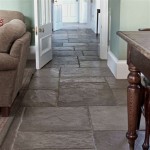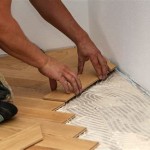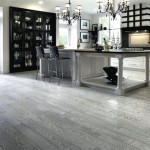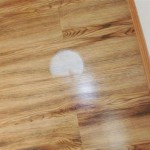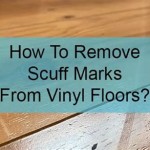Schön Prefinished Engineered Hardwood Flooring: A Comprehensive Overview
Schön prefinished engineered hardwood flooring represents a popular flooring choice, offering a balance of aesthetics, durability, and installation convenience. This type of flooring utilizes an engineered construction, comprising multiple layers bonded together, topped with a solid hardwood veneer. This design provides greater stability and resistance to moisture compared to solid hardwood, making it suitable for a wider range of environments. The "prefinished" aspect means the flooring boards are stained and sealed at the factory, eliminating the need for on-site sanding and finishing, thereby reducing installation time and mess.
The appeal of Schön prefinished engineered hardwood flooring lies in its ability to replicate the natural beauty of solid hardwood while offering enhancements in performance and ease of installation. Consumers often choose this option to achieve a high-end look without the extensive labor and potential disruptions associated with traditional hardwood flooring projects. The variety of wood species, stains, and surface textures available within the Schön line allows homeowners to customize their floors to complement a diverse spectrum of interior design styles.
Understanding the key characteristics, benefits, and limitations of Schön prefinished engineered hardwood flooring is essential for making an informed decision. This article will explore various aspects of this flooring option, including its construction, advantages, disadvantages, installation methods, maintenance requirements, and factors to consider when selecting the right product for specific needs.
Understanding the Construction of Schön Engineered Hardwood Flooring
The core of Schön engineered hardwood flooring lies in its multi-layered construction. This is the key differentiator from solid hardwood, which is a single piece of wood. The layers typically consist of a top layer (the veneer), a core layer, and a bottom layer. The veneer, or wear layer, is the visible surface of the flooring and is made from real hardwood. The thickness of this veneer is measured in millimeters and dictates the floor's durability and ability to be refinished. Thicker veneers allow for more sanding and refinishing, extending the lifespan of the floor.
The core layer provides stability and resistance to moisture. Materials used for the core can vary, including plywood, high-density fiberboard (HDF), or softwood. Plywood cores, particularly those made with multiple plies, offer excellent stability and moisture resistance. HDF cores provide a very dense and stable base, but might be more susceptible to swelling if exposed to significant moisture. Softer wood cores are least desirable due to their lower density and potential for instability.
The bottom layer, also known as the backer layer, provides additional stability and helps to prevent warping. This layer is typically made from a hardwood or softwood veneer. The overall construction aims to create a dimensionally stable product that is less prone to expansion and contraction due to changes in humidity and temperature compared to solid hardwood. This makes Schön engineered hardwood flooring a suitable option for basements, kitchens, and other areas where moisture may be a concern.
The quality of the construction significantly impacts the performance and longevity of the flooring. The type of wood used for the veneer, the thickness of the veneer, the materials used for the core, and the adhesives used to bond the layers together all play a crucial role. When selecting Schön engineered hardwood flooring, it's important to carefully review the specifications and understand the materials used in each layer to ensure the product meets the desired performance criteria.
Advantages of Choosing Schön Prefinished Engineered Hardwood Flooring
Schön prefinished engineered hardwood flooring offers several advantages over solid hardwood and other types of flooring. One of the primary benefits is its improved resistance to moisture and temperature fluctuations. The engineered construction allows the flooring to expand and contract less than solid hardwood, reducing the likelihood of warping, cupping, or gapping. This makes it a suitable choice for areas with higher humidity levels or where temperature variations are common.
Another significant advantage is the ease of installation. The prefinished nature of the flooring eliminates the need for on-site sanding, staining, and sealing, which significantly reduces installation time and mess. Many Schön products are designed with click-lock systems, allowing for easy and quick installation without the need for nails or glue. This can be a cost-effective option for homeowners who prefer to handle the installation themselves. Furthermore, prefinished floors allow for immediate use after installation, unlike unfinished hardwood that requires several days for finishing and drying.
The variety of styles and finishes available is another considerable benefit. Schön offers a wide range of wood species, stains, textures, and plank widths to choose from, allowing homeowners to achieve the desired aesthetic for their space. Whether the preference is for a traditional oak floor, a modern gray-toned finish, or a rustic distressed look, there are options available to suit diverse design preferences. The prefinished aspect also ensures a consistent and durable finish, as the factory-applied coatings are typically more resistant to scratches and wear than those applied on-site.
Cost-effectiveness is a further advantage. While the initial cost of Schön prefinished engineered hardwood flooring can vary depending on the wood species, veneer thickness, and construction quality, it is often more affordable than solid hardwood, especially when considering the reduced labor costs associated with installation. The durability of the flooring also contributes to its cost-effectiveness over the long term, as it requires less frequent replacement or repair compared to less durable flooring options.
Factors to Consider When Selecting Schön Engineered Hardwood Flooring
When selecting Schön engineered hardwood flooring, several factors should be carefully considered to ensure the chosen product meets the specific needs and requirements of the project. The first consideration is the intended use of the space where the flooring will be installed. High-traffic areas, such as hallways and living rooms, require flooring with a thicker veneer and a durable finish to withstand wear and tear. Areas with high humidity, such as bathrooms and kitchens, require flooring with a moisture-resistant core and a water-resistant finish.
The thickness of the veneer is another crucial factor. A thicker veneer allows for more sanding and refinishing, extending the lifespan of the floor. If the intention is to refinish the floor multiple times in the future, a veneer thickness of at least 3mm is recommended. Thinner veneers, while more affordable, may only allow for one or two refinishing cycles or none at all. Understanding the available veneer thickness options is vital for ensuring the floor meets long-term maintenance and aesthetic goals.
The type of core material should also be carefully considered. Plywood cores offer excellent stability and moisture resistance, making them a suitable choice for areas with potential moisture exposure. HDF cores provide a very dense and stable base, but may be more susceptible to swelling if exposed to significant moisture. The choice of core material should be based on the environmental conditions of the installation location and the desired level of moisture resistance.
The finish and texture of the flooring are important aesthetic considerations. Schön offers a variety of finishes, including matte, satin, and gloss, each offering a different level of sheen and scratch resistance. The texture of the flooring can also vary, from smooth surfaces to wire-brushed or hand-scraped textures that add character and visual interest. The choice of finish and texture should be based on the desired aesthetic and the level of maintenance required.
Finally, it is essential to consider the installation method and the subfloor conditions. Schön engineered hardwood flooring can be installed using several methods, including floating, gluing, or nailing. The choice of installation method depends on the type of subfloor and the desired level of permanence. It is important to ensure that the subfloor is level, clean, and dry before installing the flooring to prevent problems such as squeaking, warping, or buckling.
By carefully considering these factors, consumers can select Schön prefinished engineered hardwood flooring that meets their specific needs and provides years of beauty and durability. Thorough research and careful planning are essential for ensuring a successful and satisfying flooring project.

Schön Engineered Catalog Page Lumber Liquidators

Lot Detail Schon Prefinished Engineered Hardwood Flooring

2 Boxes New Schon Engineered Hardwood Flooring Red Oak Natural 70 Sq F Household Items By Owner Housewares

Mannington Schon Hardwood Flooring Durenhk38 Hickory Natural 3 8 X 5 Ll38h05na1

Lot Detail Schon Prefinished Engineered Hardwood Flooring

Schön Schon Flooring

Schön Schon Flooring

2 Boxes New Schon Engineered Hardwood Flooring Red Oak Natural 70 Sq F Household Items By Owner Housewares

Schön Quick Clic Engineered Catalog Page Lumber Liquidators

Schön Quick Clic Engineered 7 16 X 4 3 Brazilian Koa Lumber Liquidators
Related Posts

